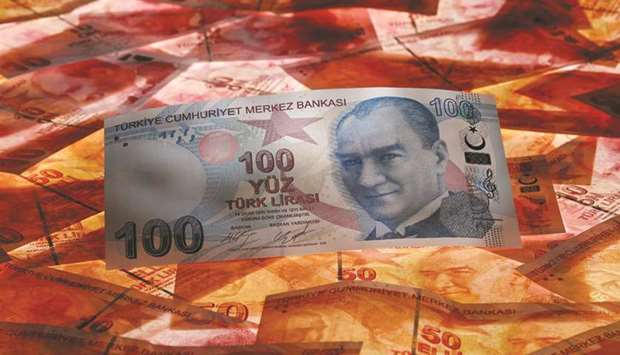Turkey’s annual consumer price index rose less than expected to 10.56% in November, increasing the chances of a sizeable rate cut by the central bank next week, even as inflation rebounded from a near three-year low.
Inflation surged last year as Turkey’s currency crisis, which almost halved the value of the lira at one point, sent the cost of imports soaring.
It has since fallen as the economy showed signs of recovery, and eased to 8.55% in October, its lowest since December 2016.
The central bank, which says it sets its monetary stance to leave a “reasonable” real rate, had raised its policy rate to 24% last year but has since lowered it by 10 percentage points as inflation slowed.
With November inflation, the real rate stands at 3.44% and is expected to narrow further as inflation edges up in December.
Year-end inflation expectations have been revised down to around 11.5%, said Hilmi Yavas, economist at Yatirim Finansman, adding that the central bank could cut up to 200 basis points.
“Compared to 2019, it will be harder for inflation to fall from now on,” he said, adding that it will fluctuate around 10% in 2020.
“From now on, for us to see a permanent fall in inflation, it needs to be brought down structurally.”
Month-on-month, consumer inflation rose 0.38% in November.
A Reuters poll had forecast monthly inflation at 0.7% and annual inflation at 11%.
The producer price index declined 0.08% month-on-month in November for an annual rise of 4.26%, data from the Turkish Statistical Institute also showed.
Finance Minister Berat Albayrak said the lira’s recent stability and a decrease in imports helped “maintain the positive outlook in inflation” and showed Turkey could end the year below its inflation target of 12%.
Jason Tuvey, senior emerging markets economist at Capital Economics, said the rise in November is likely to mark the start of a steady upward trend over a couple of years.
“This won’t prevent the central bank from cutting interest rates further at the next couple of meetings, but we think that it will be forced to reverse course around the middle of next year,” he said, adding that he expects inflation to reach 15% by end-2020. The government forecast inflation at 8.5% at end-2020, while the central bank estimated it at 8.2%.

Finance Minister Berat Albayrak has said the lira’s recent stability and a decrease in imports helped u201cmaintain the positive outlook in inflationu201d and showed Turkey could end the year below its inflation target of 12%
